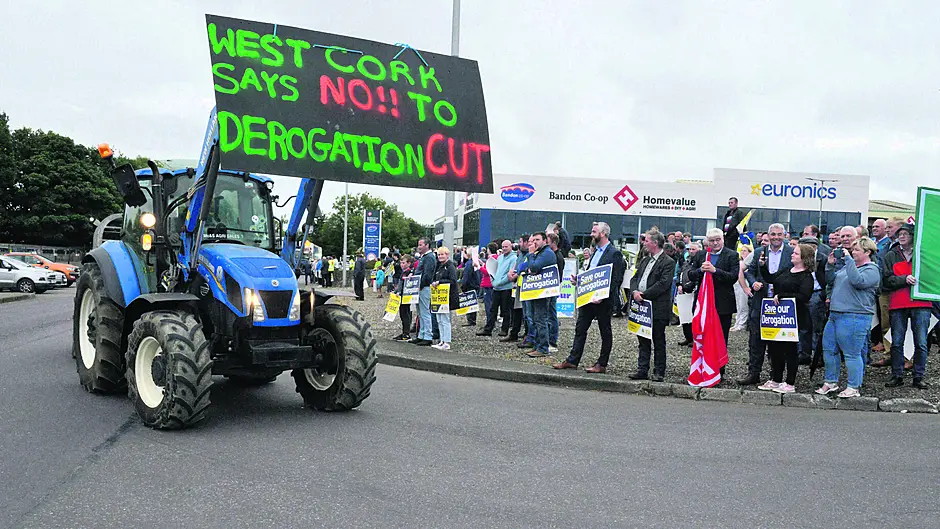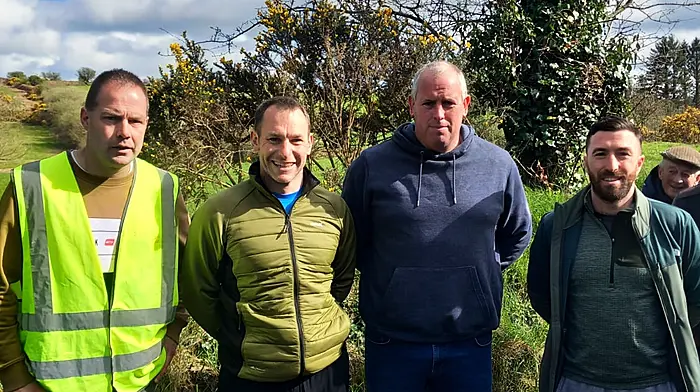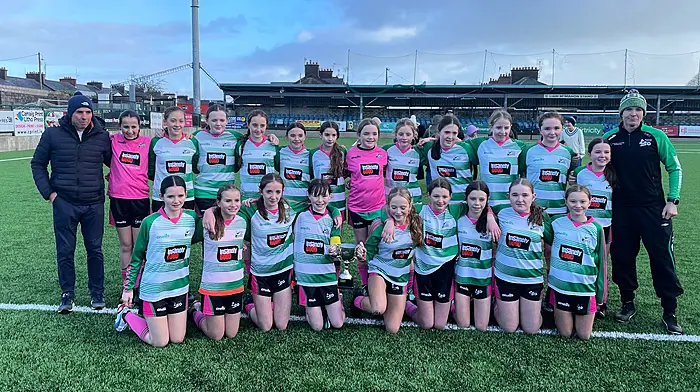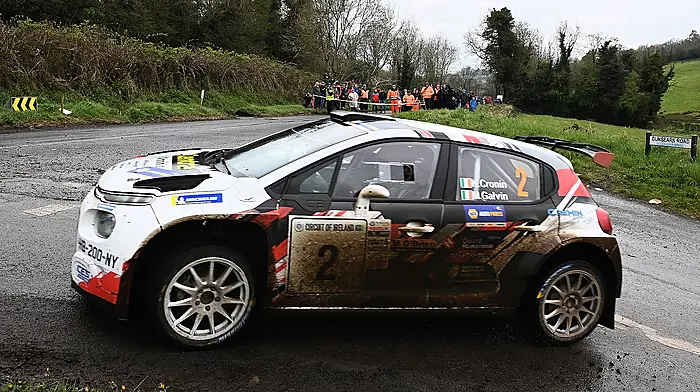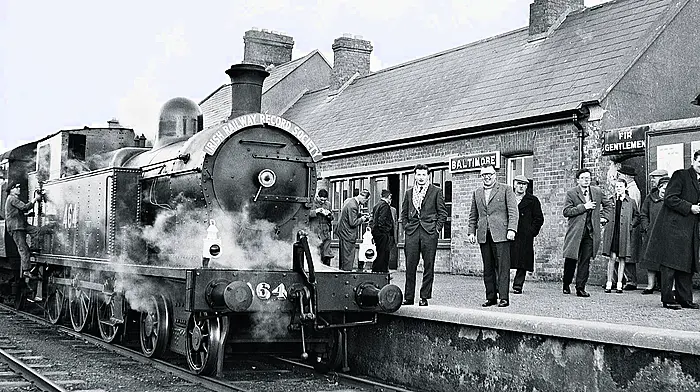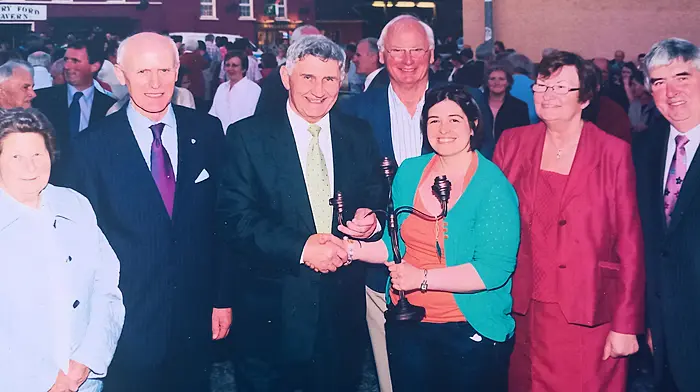Huge crowds attended an IFA-organised rally in Bandon on Thursday night, which laid bare the consequences of dairy farmers losing their 250kg nitrates derogation, reports Emma Connolly
FOR the past 15 years West Cork farmers say they have done everything that’s been asked of them by policy makers, but now they are saying an emphatic ‘no’ to losing the 250kg nitrates derogation.
The derogation loss will not only devastate farmers, but impact the entire West Cork economy, a well-attended protest rally in Bandon heard last Thursday night.
Farmers of all disciplines, along with industry stakeholders at the IFA-organised event in Bandon Co-op last Thursday night, came together to get their message to a wider audience.
Speakers at the rally, attended by around 800 people and 400 tractors, included IFA president Tim Cullinan, Barryroe Co-op chair Peter Fleming, West Cork IFA chair Donal O’Donovan, Cork central IFA chair Conor O’Leary and Máire McCarthy, Bank of Ireland, who all stressed how crucial the coming weeks will be to get their voices heard, before a decision is made in Europe in September.
The current nitrates derogation (2022 to 2025) allows farms to operate with higher stocking rates, above the 170kg of organic nitrogen per hectare, up to 250kg, but that is now under review.
When the European Commission granted the derogation, it was on the condition of a water quality review based on Environmental Protection Agency (EPA) data.
However, the EPA’s just-published report on water quality said it found no significant improvement in the water quality of rivers and lakes in the interim period.
The European Commission is due to announce its decision on the nitrates review in September, and it will become law from January 1st.
Effectively a reduction from 250 to 220kg N/ha – the widely touted figure – will mean a farmer who currently has 100 cows will have to drop to 88; and someone with 50 would have to drop numbers to 44.
This would be on top of stocking changes already required by banding rates introduced earlier this year.
‘Agriculture is our Facebook and Google. This will impact everyone, not just dairy farmers, and we have to stand shoulder-to-shoulder on this.’ said the IFA’s Donal O’Donovan.
Máire McCarthy of Bank of Ireland, from a family farm herself, said such farms must recognise the contribution they make to the local economy: ‘We must stick to our guns on this so we will continue to be here long into the future.’
Peter Fleming, Barryroe Co-op chair, said losing the derogation, combined with banding, would have the potential to reduce a dairy income by 29%. He also pointed out that research by Teagasc found the measure would have a minimal impact on nitrogen leeching, and highlighted the positive results coming from the Agricultural Catchment Programme (ACP) conducted by Teagasc in Timoleague.
‘Methods of farming have changed a lot in the past few years, and it’s not unreasonable of us to ask for time for those results to be seen,’ he said.
‘If cows go from West Cork it will devastate farms, families, co-ops and all those involved in ancillary industries. We have to stand up for ourselves on this.’
He urged the Taoiseach to invite the leader of the EU commission to West Cork to see the situation first-hand and he urged all those attending ‘not to underestimate the value of your vote.’
IFA president Tim Cullinan said it was crucial to protect the country’s grass-based system.
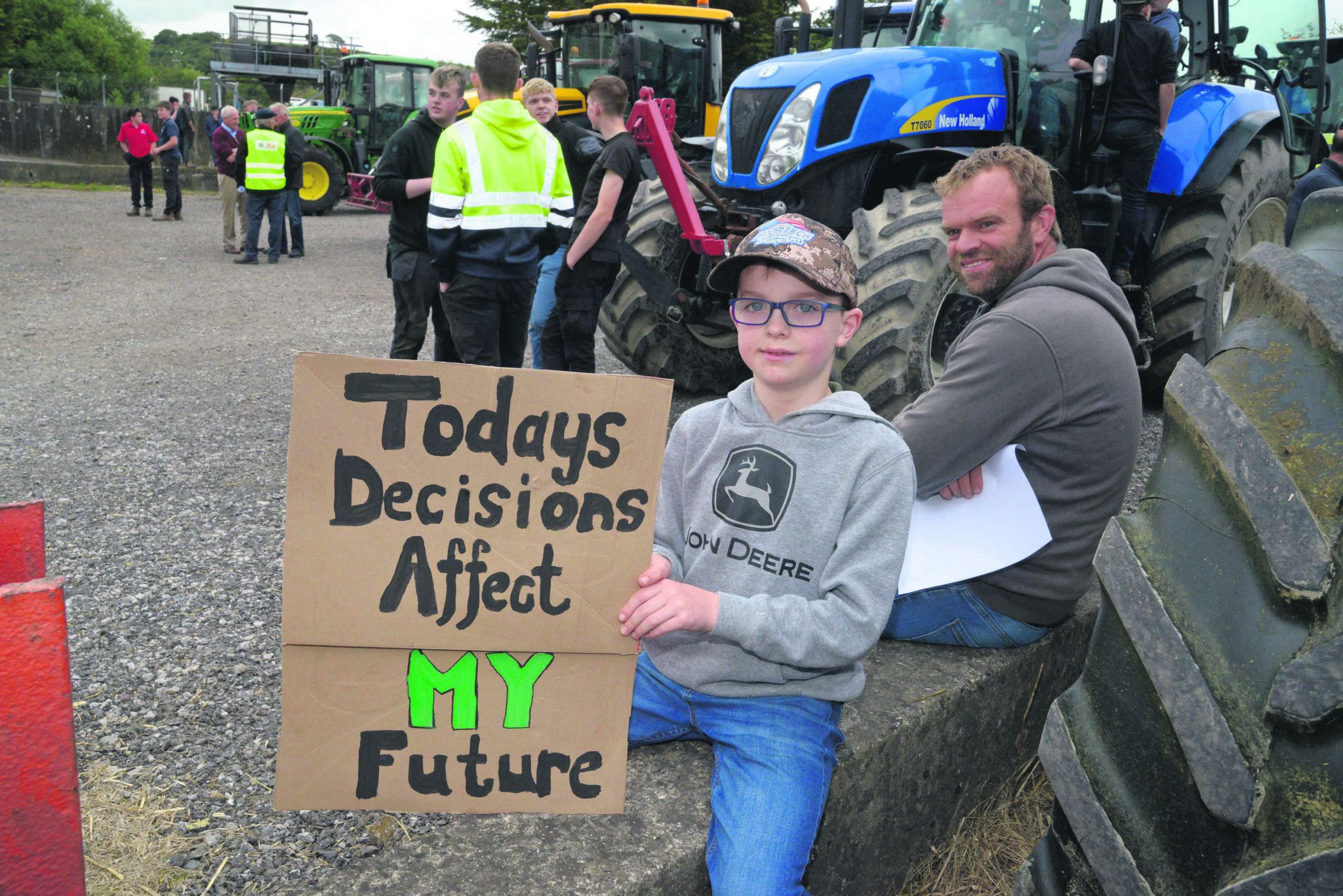 Mason O’Driscoll from Rossmore has a strong message, too. (Photo: Denis Boyle)
Mason O’Driscoll from Rossmore has a strong message, too. (Photo: Denis Boyle)
‘Lots of member states would love to see us lose that, but the markets are there and we must fill them,’ he said.
Chairman of Carbery, Cormac O’Keeffe, told The Southern Star they had a lot of concern over any potential drop in milk supply.
‘There’s no more land available in West Cork, so a cut in derogation would mean a cut in milk,’ he said.
He said Carbery had worked hard to build markets in Europe and Asia. ‘But if there’s no milk we can’t supply these markets. We’re watching this situation very anxiously.’
Conor O’Leary of the IFA said the ‘nonsense’ had to be ‘rejected and refused’ and he stressed the amount of investment undertaken in the area, and the commercial activity that was dependant on maintaining the 250kg level.
He also stressed that the reduction wasn’t a ‘done deal’ but he issued a strong warning to farmers, saying: ‘Winter slurry spreading has to stop, we simply can’t be on the wrong side of this.’
And to the local TDs in attendance, Deputies Christopher O’Sullivan (FF) and Michael Collins (Ind), along with Senator Tim Lombard (FG), he said: ‘Politicians cannot come back to us and say that 250 is gone. That cannot happen.’
Speaking later to The Southern Star, Christopher O’Sullivan said it was obvious to him that farmers milking 70 or 80 cows don’t have the option to buy up or rent or lease extra land to stay within the stocking rate.
‘So, the only option is to reduce cow numbers, therefore in many instances making it unviable. I’m concerned about the unintended consequences and the impact that that will have, especially on the family run farm. All farmers are looking for is a bit more time to ensure that measures like on-farm storage, low emission spreading and seasonal spreading will work to improve water quality.’
Social Democrats leader Holly Cairns was speaking on RTÉ’s Prime Time at the time of the rally, where she spoke of the need to ‘future proof the sector’ and said it was time to accept the reality that Europe will no longer allow the derogation.
Mr O’Leary suggested the Bandon rally was the first of others, including one possibly in Dublin.
WHAT DO WE DO WITH OUR COWS?
ALAN Jagoe, dairy and tillage farmer from Novohal and current IFA dairy vice-chair said a change to derogation would mean ‘running faster to stay still.’
‘If the changes are going to make a significant difference, fair enough, but results show they won’t, which makes it even more frustrating.
‘We are not shirking our responsibilities, we do have a major role to play but we need time. The measures we’ve taken in the last two years will start to impact in the next two to three years.’
Eileen Calnan, West Cork chair ICMSA said that farmers responded to the government when they were encouraged to grow their herds.
‘But that’s all changed now and what are we to do with our cows and our investments? We have to listen to the science on this.’
John Walsh, a Timoleague dairy farmer, said his twin sons (20) had just returned from a four-month placement in New Zealand as part of their agri studies in MTU. ‘They came back really enthusiastic, but even with banding we’re down 30/50 cows and instead of driving on as we had planned, we have to hold back. It’s very disappointing.’
Innishannon dairy farmer Jeremy Connolly said huge amounts of money were spent by farmers taking part in ASSAP (Agricultural Sustainability Support and Advisory Programme), to improve water quality, but that it takes time to get results. He said it was naïve to think a derogation change wouldn’t result in food production being moved some place ‘dirtier and unregulated.’
 Farmers listening to the speakers at Bandon Co-op. (Photo: Andy Gibson)
Farmers listening to the speakers at Bandon Co-op. (Photo: Andy Gibson)
